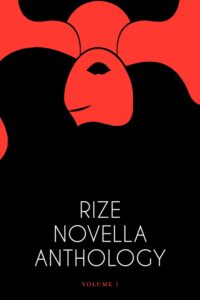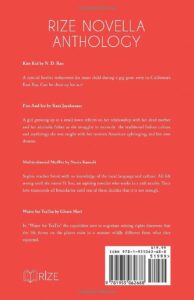How do you take a scene or character and turn it into a short story?
A dozen years ago I decided to improve my prose. I started writing shorter pieces because that would allow me to stop and edit and polish and then quickly start again on something new. But in the process, I discovered that it’s not easy for me—a novel reader, primarily—to find the meaning or point of a short story. I have pieces that seem to have legs but they don’t always lead somewhere satisfying.
Recently I started reading Smash Your Flash – The Craft of Short (Short) Fiction, by Jo Gatford for The Forever Workshop. In lesson 5 she asks; What is your story about? and What is your story really about? (this lesson is behind a paywall; subscribe and read it and the others, they’re worth it!)
What is your story about? – Jo says this is the subject. I like to think of this as the events, the plot. The quick-glance exoskeleton summary.
Then,
What is your story really about? – Jo says this is the deeper meaning. For me, this is like the second version of the story. A mirror. A parallel universe. The subtext. The subconscious, hinted version of the story.
The point of the story. The dreaded theme.
I’ve tried similar approaches that did not work quite so well. For example,
- What is the story about?
- What is the meaning behind the story?
- What is the lesson?
Seems almost the same, right? Yet, this wording didn’t click for me.
Or the Lajos Egri Theme formula:
- Character: trait or flaw
- Conflict: struggle or dilemma with the trait or flaw
- Conclusion: resolution of conflict, often reflecting the theme
Or,
________ leads to _________
All these approaches help a bit. In fact, these and other broad editing questions are part of my default Scrivener template so that I can pull them up and review everything in these terms. But I still struggle.
Here’s an example. I have an old story that takes place at a poetry slam. I don’t know what it’s really about. Arrogance, lack of understanding about poetry, ridiculous competitions? Right off the bat the situation and events are unusual and unexpected. Does that mean my theme is fear, a fear of the unknown like the horror of a Twilight Zone episode? But scrolling through horror themes and Twilight Zone interpretations I don’t find any strong connections to what I think I have.
In my story a woman is perusing live poetry readings, unaware that the performances are not voluntary. Like victims of trafficking, blackmail, or those ordered against their will by human traffickers, criminals, or abusive bosses, these poets are not performing entirely of their own volition.
If that is the underlying parallel, then this is a much darker story than I thought. The main character could be one of those abusers, and/or the organizer/guardian of the event is one.
But even as I typed that, I realized there’s also something interesting when the characters make the original decision to compete or not. The visiting woman has the option to enter the competition but chooses not to. The main character, a self-confident (arrogant) man did choose to compete. What sort of person enters a poetry competition with no experience or training? This reminds me of people who have no musical training but believe that their singing is excellent.
This, I think, is the key meaning. Why would he think he is innately talented enough to be compared with those that have worked for years at honing their craft? Why do people get up on a stage and tell jokes, or sing in front of a band, or think they can write the Great American Novel without training and practice? Would he also try to perform surgery after watching YouTube demonstrations?
If this is the point of the story, I should be able to shape it to carry more of this meaning. A singing competition might be clearer than a poetry slam, but it would be more difficult to show his incompetence and besides, there must have been a reason why my mind felt the poetry slam to be a fertile setting. I might also slant him toward an abusive or at least inconsiderate past as that will synch nicely with his self-concept.
Of course, part of this is me being petty and insecure after having put in time and effort as well as being jealous of the thought of someone getting ahead without the effort. And at the end of the story, the main character and the other captive poets are left in the dark to wait until tomorrow to have another chance; trapped in a purgatory of “American Idol: Poetry Version”, and having to submit over and over again.
So, there it is. A “live” version of me, trying to use Jo Gatford’s search for meaning in an old piece that I was dissatisfied with.
Another person might find the other processes I listed just as useful or even more so, but we all respond differently to even slightly different wordings. Those other methods never clicked for me the way that Jo’s seems to so far. So try it. Try the others. If I haven’t given enough explanation, all of the processes I’ve listed are available somewhere on the internet with more description.
Meanwhile, if you’ll excuse me, I have a dozen more pieces I need to review …



